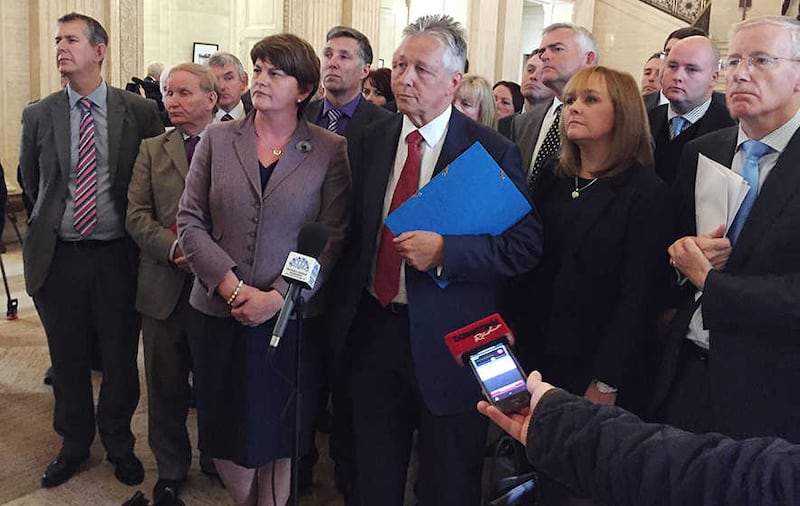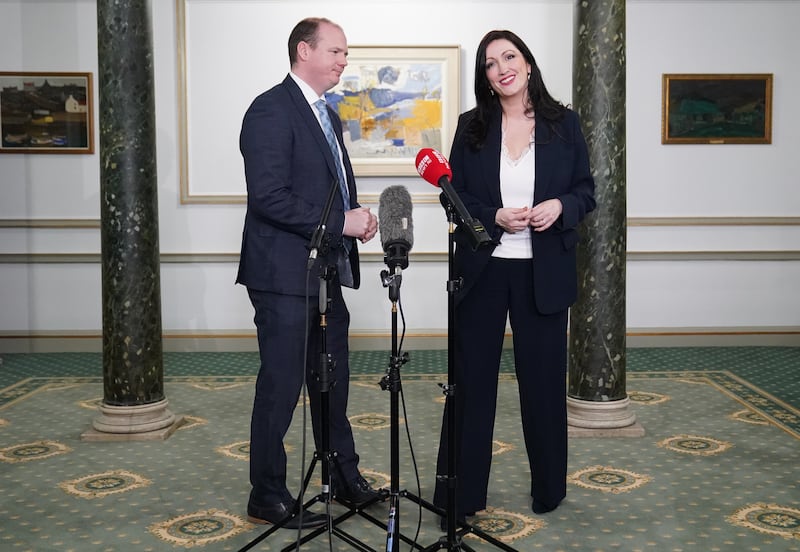The DUP’s best route out of the crisis it now finds itself in is to focus on delivering a small number of concrete policies that improve everyday lives.
Careful positioning of the party on big-theme issues of Brexit, devolution and the union will also be necessary and should be possible, but that will not be sufficient in an upcoming election when voters ask ‘what have you done for me?’
A clear answer to that question will help the party move on, partly by functioning as a distraction from political retreats and awkward compromises.
Peter Robinson understood this when he steered the DUP through Stormont’s first mandate between 1999 and 2003. Big-theme issues were obviously dominant in the initial years of the Good Friday Agreement but Robinson made sure his party’s small team of ministers had headline achievements they could proclaim in manifestos and on the doorsteps, such as major road and rail projects and free public transport for the retired. The DUP is still mentioning the latter in manifestos two decades on, including at Westminster elections, as Stormont is the only place where a Northern Ireland party can build a record of practical delivery.

One of the ironies of the DUP’s predicament is that it hobbled its own freedom to unveil attention-grabbing policies and take sole credit for them.
Under the St Andrews Agreement, the DUP insisted on new mechanisms to prevent ‘ministerial solo runs’ – a reaction to Sinn Fein’s closure of the Jubilee Maternity Hospital and attempted abolition of academic selection.
So the DUP’s ministers can be stopped from doing anything the rest of the executive considers significant, controversial, cross-cutting or outside the programme for government. They also need to stay within their budgets. There is no guarantee a budget and programme for government will be agreed before the general election.
The DUP controls two departments, education and communities, which should still offer scope for radical action. So far, the two headline policies to emerge from them are rolling back the new sex education curriculum and ensuring Westminster rather than Stormont pays the cost over-run for Casement Park.

Both policies are likely to be popular with DUP voters and in theory everyone should support the party’s position on Casement Park – it is objectively correct.
However, both have come across as negative, with tribal and culture war overtones. Neither are bread-and-butter issues. It is unclear to what extent they are DUP priorities or just stories the party has failed to control. Its 2022 Stormont manifesto made no mention of sex education and promised “facilities for all sports and all communities”.
- London wants proof that Stormont can take the tough decisions – Newton EmersonOpens in new window
- Paul Givan: Who is Stormont’s new education minister?Opens in new window
- Analysis: A republican first minister is truly historic – but new Stormont executive’s challenge is now to turn rhetoric into deliveryOpens in new window
A key education policy in that manifesto is a cap on school uniform costs. This is an important bread-and-butter issue and DUP minister Paul Givan has moved on it quickly. But the novel approach of a price cap, which will require legislation, looks like more tip-toeing around grammar schools. If legislation is to be passed, it should enforce the existing uniform guidelines that many schools ignore.
The Department for Communities has wide responsibility for housing. The DUP’s most significant promise in this area is “radical reform of the Housing Executive”. Its manifesto specifies only more powers to deal with vacant properties. However, the party also supports returning the Housing Executive to a housebuilding role and giving it access to private borrowing. Sinn Féin agrees with this, so it should get through the executive. But few voters will get fired up by a change in public sector accounting rules, especially one whose effects would take years to become visible.

Another prominent housing pledge in the 2022 manifesto is “greater regulation of short-stay holiday homes, the proliferation of which risks undermining many communities, especially in urban areas”.
Kicking AirBnB out of east Belfast and the Antrim coast would be popular with core constituents. Although regulation of tourist accommodation falls under a Sinn Féin department, DUP communities minister Gordon Lyons could approach it though his power to regulate private landlords.

Using that power for more general regulation of the private rental market is the DUP’s nuclear option for a big-bang policy.
One of the ironies of the DUP’s predicament is that it hobbled its own freedom to unveil attention-grabbing policies and take sole credit for them
If Lyons proposed a ban on no-fault evictions, for example, Sinn Féin would not dare oppose it.
Would the DUP confront the small but vocal minority of landlords among its voters and indeed members?
Stranger things have happened – and this is a party badly in need of changing the subject.










